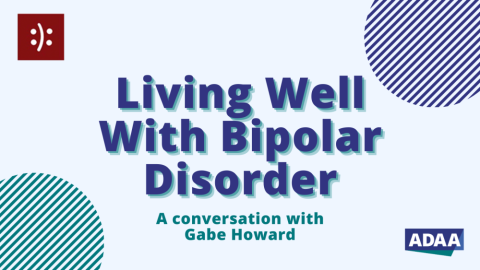What you Need to Know About Breastfeeding and Parent Mental Health
What you Need to Know About Breastfeeding and Parent Mental Health

Breastfeeding has important health benefits for babies and their parents. When it’s going well, breastfeeding can positively impact a parent’s mental health by lowering rates of postpartum depression, increasing confidence, and facilitating bonding between parent and baby. However, as many of us who have breastfed before know, it does not always go well.
Breastfeeding is a learned behavior for both baby and parent that requires guidance, nurturing, and support. Not only that, it requires substantial leave from work to establish and maintain a sustainable milk supply for a newborn. Parents in the United States face an uphill breastfeeding battle as they navigate parenthood without paid leave. Additionally, many parents have lost generations of breastfeeding knowledge and find themselves managing newborn responsibilities without the help of extended family or community networks.
If complications arise while attempting to breastfeed, it can take a toll on parents’ mental health. In an article published in Advances in Psychiatry and Behavioral Health, my fellow researchers and I summarized different ways complications with breastfeeding and mental health can impact one another.
Pain and Complications
Some parents encounter immense pain and difficulty in the early days and weeks of breastfeeding. Because breast milk is supplied by one parent every two to three hours to meet the feeding needs of a growing newborn, it can put a high level of physiological and emotional stress on the person experiencing that pain.
Some examples of breastfeeding complications are:
- Clogged milk ducts
- Thrush
- Breast swelling (engorgement)
- Nipple fissures (cuts)
- Mastitis (breast infection)
Complications often relate to the baby's latch at the breast and require help from a lactation specialist, like an International Board Certified Lactation Consultant (IBCLC). Having these complications can put the breast- or chest-feeding parent at risk for increased levels of depression and anxiety.
Additionally, some parents experience Dysphoric Milk Ejection Reflex or D-MER. D-MER is a condition that causes intense negative emotions during milk let down or release, whether breastfeeding, expressing milk, or pumping. These intense emotions resolve quickly once milk is flowing, typically lasting 30 seconds to two minutes. Research is ongoing and no treatments are currently available. The important thing to remember with D-MER is it is a reflex and not something the breastfeeding parent can control.
Milk Supply
When breast milk comes in during the first week following childbirth, some parents experience intense engorgement (swelling of the breast tissue) and an oversupply of breast milk. Others have less milk producing glands and worry they are not producing enough breast milk to sustain the growth of their baby.
Both issues can lead to more sleep disruption, anxiety, and obsessions. With oversupply, parents have to work vigilantly to keep swelling and pain at bay, as well as reduce milk production without compromising long term milk supply. This almost always requires working with a lactation professional.
With undersupply, a parent may have intense anxiety, sometimes leading to obsessive-compulsive behaviors, concerning their baby’s weight and growth. Stress can impede the flow of breast milk, further compounding the issue. Visiting the pediatrician can become a stressful experience for newborn weigh-ins and parents often receive conflicting advice from health professionals on how to proceed with feeding.
Autonomy
An important theme that emerged from the research was the significance of parents having autonomy over their feeding choices. When parents had different intentions and expectations for their breastfeeding journey than reality, it put them at higher risk for postpartum depression. This included both the desire to breastfeed and the desire not to breastfeed.
Other Psychiatric Conditions
Current research overwhelmingly lacks breastfeeding studies of parents with pre-existing mental health conditions, like Obsessive Compulsive Disorder (OCD) and Bipolar Spectrum Disorders. We don’t know the details of how those conditions impact a parent’s infant feeding journey and postpartum mental wellness. Sleep disruption is a known triggering factor for those with Bipolar Spectrum Disorders and Postpartum Depression, making overnight on-demand breastfeeding a potential challenge. It’s important that all members of a person’s care team are informed to help a family make appropriate risk-risk decisions and have in-home support in place when the baby arrives.
Feeding Baby & Taking Care of You
So, how can you and your partner best prepare to feed your new baby while caring for yourselves? This question is especially important for those, just like me, who have pre-existing mental health conditions.
Education is a great place to start. Take a breastfeeding course with your partner. Do some reading on vetted resources like Kelly Mom and La Leche League.
Know all of your options and discuss them with your care team before conceiving or during pregnancy. Talk to your mental health provider about your desires to breastfeed or not. Talk to your pregnancy care team about your mental health concerns.
Build your support network. Compassionate support from other parents who have been there can lift your spirit on a hard day. Look up local parent groups in your community or find online support with Postpartum Support International. Having in-home support from a family member, postpartum doula, or visiting nurse after your baby arrives can also be beneficial to supporting your feeding goals and wellbeing.
Find the experts. Use a resource like The Lactation Network to find a local team of feeding experts who are knowledgeable in mental health care. Utilize the Anxiety and Depression Association of America’s provider search tool. Postpartum Support International also offers a national provider directory of professionals who specialize in perinatal mental health.
Be gentle with yourself. Things won’t always go as planned and that’s ok. Give yourself lots of grace. Speak up when you’re worried or overwhelmed. Be open to receive help. There are many ways to be a loving parent.
Source(s):
- Thompson, L., Leistikow, N., Smith, M., & Standeven, L. (2024). The Relationship between Infant Feeding and Maternal Mental Health: Clinical Vignette. Advances in Psychiatry and Behavioral Health, 4, 135-145. https://doi.org/10.1016/j.ypsc.2024.05.005
- Perry, A., Gordon-Smith, K., Lewis, K. J. S., Di Florio, A., Craddock, N., Jones, L., & Jones, I. (2024). Perinatal sleep disruption and postpartum psychosis in bipolar disorder: Findings from the UK BDRN Pregnancy Study. Journal of affective disorders, 346, 21–27. https://doi.org/10.1016/j.jad.2023.11.005
- Leistikow, N., Smith, M. (2024). The role of sleep protection in preventing and treating postpartum depression. Seminars in Perinatology, 48. https://doi.org/10.1016/j.semperi.2024.151947




















